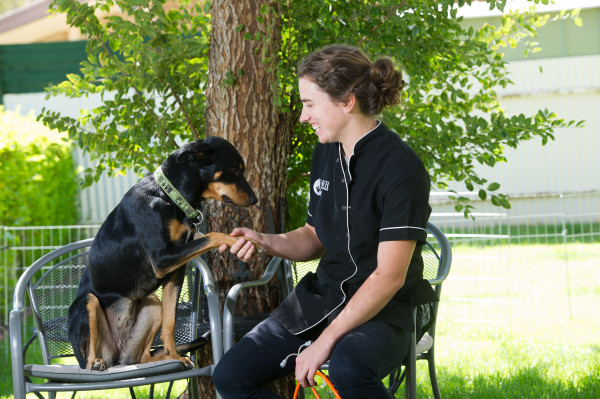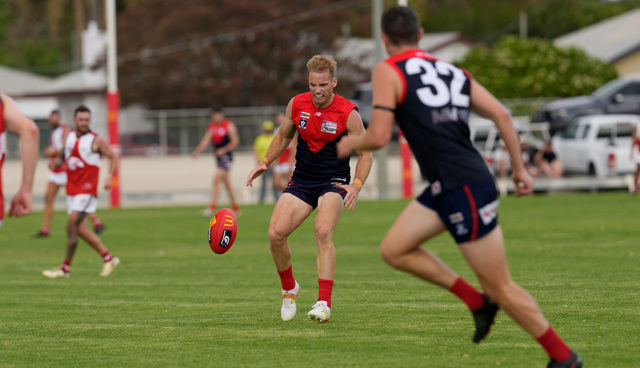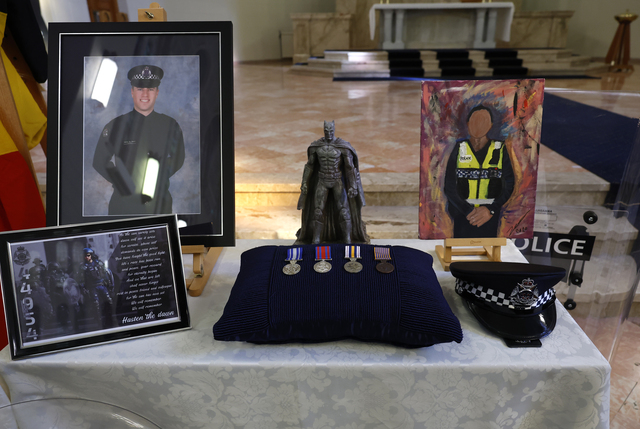Ever wondered what it’s like to be a veterinarian? Teagan Bell chats to Mildura Veterinary Hospital doctor Alex Wellington about the ins and outs of the sometimes controversial career.
Why did you choose to become a vet?
I just thought it would be interesting. Most vets probably grew up knowing they wanted to be a vet but I wasn’t quite like that.
I didn’t really know what I wanted to do at university, and I was thinking about doing animation, actually.
So around Year 11 or 12 I thought I better pick something to do and though university was fun I didn’t really love the job until I actually started working.
What do you love most about the job?
I really like the variety. It’s different every day and I don’t, to an extent, know what I’m going to see each day so I find that really interesting and mentally stimulating.
And I love animals like most people do. It’s never boring.
What does the average day of a vet look like?
I normally get into work around 8am and consult all morning until about lunchtime.
And then we do any sort of surgeries between 12pm and 3pm, and consult from then on until around 6.30pm.
It just depends on what you’ve got booked in.
You’ll have routine surgeries and surgeries booked in from the previous day but then you might see something that needs to be seen urgently so you’ll sometimes have to shuffle things around to fit it all in.
I also go to Ouyen every second Thursday if we’ve got enough staff to see animals out there as well.
What’s the biggest challenge?
Probably working within people’s finances.
Most people would describe vets as really expensive because we have the medicare system for human medicine, which is really fantastic, but the actual costs of diagnostics is hidden.
So I might get an ultrasound on my ankle and the total cost might have been $800 but I don’t see that.
So it’s hard for people to appreciate vet medicine because we have no buffers or government subsidies and because of that we cop a fair bit of abuse from the public.
A lot of vets get accused of being in the job for the pay which isn’t true because vets don’t actually get paid that well.
So when you first start out it can be difficult to get used to dealing with a cohort of people who are in a very stressful job and love animals but then get accused of not caring about them.
So you do have to learn not to take it personally and understand where people are coming from because most of the time they’re very emotional because their pet is sick.
Is there anything unexpected about being a vet?
Yes! Although we get angry clients, we do, by far, get the most presents from people whose pets we’ve euthanised.
So people are really appreciative if their pet had a disease or a fracture or something and you’ve repaired it, but we get the most thanks from people whose pets we’ve put down.Which is surprising, but I think people really appreciate that service.
What are the differences between regional and metropolitan vets?
When you’re in a regional or rural town that is quite isolated you don’t have access to referral services, which means we get to do a lot more.
So I do more surgeries here than I would if I was working in a city, because there you’ll have a referral emergency centre down the road and if anything starts to get complicated it gets sent there.
Rural vets also need to do on-call, and when you’re starting out you learn the most when you’re on-call because that’s when the emergencies come in and you’re forced to work through them without 10 people around you.
Is it true that people look like their pets?
I think it’s a bit of confirmation bias, and I think we notice it when it’s true but the thing to keep in mind with that is to never mention it to the client.
People usually aren’t happy to hear it.







